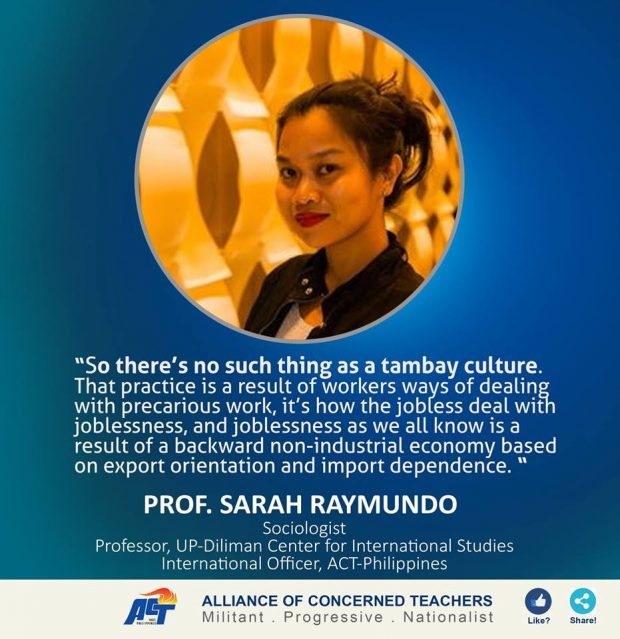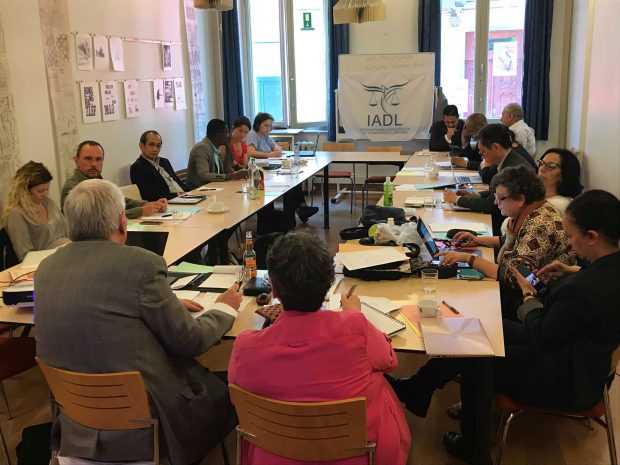By Prof. Luis V. Teodoro
The killing of three priests over the last six months — of Fr. Marcelito Paez last December, 2017, Fr. Mark Ventura in April, and Fr. Richmond Nilo this June — has provoked both outrage as well as fears that it is part of the Duterte regime’s campaign to silence its critics.
Priests have been murdered in this country and in the rest of the world for years. Among dozens of others in Latin America, while saying mass in 1980, El Salvador’s Archbishop Oscar Romero was assassinated by a death squad for his opposition to dictatorship, injustice and torture. In the Philippines, 32 clergymen and church workers, 16 of whom were Catholic priests, have been killed since the Marcos regime (1965-1986).
The online news site MindaNews lists 13 priests killed from 1971, when Marcos was in his second term, to 2011 during the Benigno Aquino III administration.
Fr. Nelson Javellana was ambushed in Maguindanao in 1971, Fr. Godofredo Alingal killed in Bukidnon in 1981, and Fr. Tullio Favali in North Cotabato in 1985.
Anti-illegal logging activist Fr. Mario Estorba was killed in Agusan del Sur in 1988, followed by Fr. Dionisio Malalay who was slain in Zamboanga del Sur in1989, and Fr. Nerylito Satur in 1991. All three killings happened during the Corazon Aquino post-martial law administration.
Bishop Benjamin de Jesus was killed in 1997 during the Fidel Ramos term, and Fr. Rhoel Gallardo of Basilan and Fr. Benjamin Inocencio of Jolo in 2000 during the brief presidency of Joseph Estrada .
Two priests were killed during the nine years that Gloria Macapagal-Arroyo was president : Fr. Rufus Haley in 2001, and Fr. Reynaldo Roda in 2008. One priest, Fr. Fausto Tentorio, was killed in 2011 during the Benigno Aquino III administration.
These 13 plus the three killed during the present regime add up to 16 priests murdered in the last 47 years. Only the killers of Fr. Favali in 1985 have been punished: together with his men, the leader of the paramilitary group responsible was tried, convicted, and sentenced to life imprisonment, but was pardoned after 23 years in prison.
The Duterte regime can very well argue that the killing of priests is not a phenomenon unique to it, and that rather than part of a policy to intimidate the Church, the killings do not reveal any pattern but are likely to have been due to any number of motives .
But all the priests killed did have something in common: their being political and social activists, and their commitment to the defense of the poor and powerless. All were human rights defenders. Some were fighting for indigenous people’s rights, others for the environment, for a just and lasting peace, for equality and social justice, and against militarization and peasant and worker exploitation.
The killings suggest that they were carried out by those groups and forces hostile to those advocacies. The economic, social and political issues and problems the slain priests were addressing are still with us, and continue to demand the engagement of everyone, including the clergy, who sincerely care for this country and its people.
All post-Marcos administrations up to Benigno Aquino III’s at least paid lip service to the need for justice for the slain priests, and none of them ever suggested that the killings were justifiable. The Philippine National Police as of this writing has announced the arrest of a suspect in the killing of Fr. Nilo. But President Rodrigo Duterte’s most recent statements have laid the blame on the fatalities themselves, thereby suggesting that the killings can be blithely explained away, or even justified. And only Mr. Duterte’s subordinates have issued the usual assurances about going after the killers.
During the 2016 presidential campaign, Mr. Duterte blamed the journalists who have been killed in this country for their own murders because they were all supposedly corrupt. He is similarly blaming the slain today by claiming that despite their vows of celibacy, priests are no different from him in that they too have had affairs with women. He followed this up, prior to the murder of Fr. Nilo, with attacks on the Catholic Church and even on God Himself.
Neither corruption nor immorality justifies anyone’s being killed, whether judicially or extrajudicially. If they did, every other government official would deserve a lethal injection, or a bullet in the head from the usual police and motorcycle-riding assassins. But the current President of the Philippines seems to think that these failings, like the use of illegal drugs, are capital offenses.
His tirades and profanities against Catholic priests and the Church itself, just like his justifying the killing of journalists — like Benigno Aquino III’s own verbal attacks on the press and media during his term — are also likely to encourage more killings. But this is to assume that it would be merely incidental and unintentional, and there is no regime policy to do away with its critics in the clergy and other “troublesome” sectors like the independent press.
Such a policy would after all be in direct contradiction with the government responsibility of protecting its citizens. But the context in which the killing of progressive and activist priests is happening nevertheless invites the conclusion that such a policy does exist.
In apparent fear of being ousted from power–he has even announced that China will protect him if there are ever such attempts–Mr. Duterte has attacked independent journalists on the assumption that the truth-telling responsibility of a free press is likely to help remove him from office. He and his police and military bureaucrats may be entertaining the same thoughts about the activist clergy and even the Catholic Church itself.
He may not be entirely mistaken. The institutional Catholic Church has always been conservative. But there are nevertheless individuals within it who believe in seeking justice though the heavens fall– who defend human rights, who fight for social change, peace and independence, and who, in the process, have themselves become the targets of State repression.
Even prior to the EDSA 1 civilian-military mutiny, progressive clergymen and women were already in the broad resistance against the dictatorship, and helped commit the Catholic Church to the overthrow of the Marcos terror regime. The free press and media were similarly pivotal in that historic enterprise. The crucial roles of the press and the clergy in the political upheaval of 1986 may help explain the Duterte regime’s antipathy for both.
The irony is that Mr. Duterte’s attacks on the Catholic Church and priesthood are fueling the simmering outrage against his regime that he fears can lead to his overthrow, just as his assault on independent journalists and their organizations has convinced responsible practitioners of the need for critical attention to his regime’s acts and policies.
Neither all the clergy and the entire Church, nor all journalists and their organizations, have as yet forged the unity resistance to autocratic rule demands. But thanks to Mr. Duterte’s own doing, among them his enshrinement of killing and police and military impunity as State policy, today as in the months, weeks and days before EDSA 1, it may only be a matter of time before it is achieved together with the workers, farmers, students, academics, urban poor, women, and indigenous and Moro people who believe that an alternative to the reign of assassins is both necessary and possible.
First published in BusinessWorld. Photo from PCOO. / Prof. Teodoro is chairperson of the People’s Alternative Media Network


